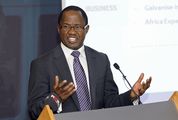I HAVE just returned to SA after living abroad and find that we are among the 20 fattest countries in the world — at the same time as one in every four South Africans regularly go hungry.
The costs of excessive and inappropriate eating, alcohol consumption, lack of exercise, and related physical and mental illness are enormous.
SA needs to take fast and decisive action. One way of doing this is to look at strategies that have worked in another country, and learn from their experience and best practice. This could help us chart a course of action to stem the downward trend.
About six years ago the UK’s government identified a number of high-risk health issues revolving around obesity, inactivity, alcohol consumption, and workplace physical and mental health. It recognised that the negative effect these issues were having on the nation’s health and economy needed radical action.
A Public Health Commission was established and The Responsibility Deal for Public Health was born. It was launched a year later, and has been developed and implemented over the past five years, supported by both the UK’s government and the health department.
As an independent professional from a health and fitness background and a businessman, I have been working with the British government and the health department on this programme from its inception.
The Responsibility Deal involved a voluntary agreement between the government and business. It set out to help tackle four major areas of concern that were having a substantial negative effect — especially in deprived communities.
Independent chairmen and chairwomen, with expertise and experience in their particular fields, were appointed to develop a plan for each of the following areas:
• Excessive consumption of the wrong types of food and drink, resulting in a significant escalation of obesity and associated illnesses;
• The inactivity pandemic, with a third of the UK population doing no exercise, resulting in a high increase in 22 lifestyle diseases including diabetes and cardiovascular disease, causing an enormous drain on the health service;
• Increasing alcohol consumption and associated illnesses; and
• Workplace issues such as mental health and musculoskeletal problems, leading to poor productivity and absenteeism, ultimately affecting the performance of business, various organisations and the economy.
Since then there have been many real and tangible successes. More than 800 businesses signed up to The Responsibility Deal Partnership and pledged to make a difference. They have delivered in excess of 2,000 projects, with business investing heavily in these both in the workplace and in the community: from cycle-to-work schemes to mental-health counselling; youth training to community fun runs.
...
MORE than 20-million customers have been made aware of the importance of lifestyle choices and of following the UK Chief Medical Officer’s guideline of 150 minutes of physical activity every week, while a reported 10-million people have adapted their lifestyles accordingly.
There have been significant reductions of salt in food across the board and more uniform nutritional information labelling on foods, a programme of calorie reduction and commitments to sugar reduction in fizzy drinks by major manufacturers.
Alcohol concentrations have been reduced in many product lines and units of alcohol are now recorded clearly on most products.
There is clear evidence of increased productivity and reduced absenteeism in the workplace, and levels of physical activity are rising.
There is still a long way to go to increase the number of companies and employers signing up to the Responsibility Deal Partnership and to further evaluate its effect. But a working model has been established.
...
WE HAVE proven that by working in partnership with business, significant modern health issues can be tackled.
By learning from the UK’s experience and seizing the opportunity to adapt, improve and implement this model, SA can achieve a healthier and more productive workforce, leading to improved bottom-line performance, a stronger economy and higher levels of employment.
SA can also muster financial support and the expertise of business to help tackle health inequalities and to build an army of delivery professionals able to tackle many areas of wellbeing, whether at company level or in the community.
The question is simple: is the South African government aware of the UK model and would it have the motivation to bring business to the table? Equally, would business have the appetite to get involved?
There is already a corporate social investment culture in SA but it is largely piecemeal with no co-ordinated national approach, sector by sector. From the UK experience this can be effective on a much larger, national scale.
SA already has an effective business incentivisation culture developed around the black economic empowerment policy. With minor adjustments this model could be adapted to tackling health inequalities, delivering tangible incentives and benefits to business and all organisations that tackle key health-related issues.
The partnership between the government and business is delivering results in the UK. It is my belief that this can work in SA too.
• Turok is the chairman of the UK Responsibility Deal Physical Activity Network and an adviser to the British government on physical activity and youth unemployment.

The level of obesity in SA puts it in the 20 fattest countries in the world. A UK programme that has made substantial gains in the fight against obesity is one SA should adapt. Picture: SUNDAY TIMES
I HAVE just returned to SA after living abroad and find that we are among the 20 fattest countries in the world — at the same time as one in every four South Africans regularly go hungry.
The costs of excessive and inappropriate eating, alcohol consumption, lack of exercise, and related physical and mental illness are enormous.
SA needs to take fast and decisive action. One way of doing this is to look at strategies that have worked in another country, and learn from their experience and best practice. This could help us chart a course of action to stem the downward trend.
About six years ago the UK’s government identified a number of high-risk health issues revolving around obesity, inactivity, alcohol consumption, and workplace physical and mental health. It recognised that the negative effect these issues were having on the nation’s health and economy needed radical action.
A Public Health Commission was established and The Responsibility Deal for Public Health was born. It was launched a year later, and has been developed and implemented over the past five years, supported by both the UK’s government and the health department.
As an independent professional from a health and fitness background and a businessman, I have been working with the British government and the health department on this programme from its inception.
The Responsibility Deal involved a voluntary agreement between the government and business. It set out to help tackle four major areas of concern that were having a substantial negative effect — especially in deprived communities.
Independent chairmen and chairwomen, with expertise and experience in their particular fields, were appointed to develop a plan for each of the following areas:
• Excessive consumption of the wrong types of food and drink, resulting in a significant escalation of obesity and associated illnesses;
• The inactivity pandemic, with a third of the UK population doing no exercise, resulting in a high increase in 22 lifestyle diseases including diabetes and cardiovascular disease, causing an enormous drain on the health service;
• Increasing alcohol consumption and associated illnesses; and
• Workplace issues such as mental health and musculoskeletal problems, leading to poor productivity and absenteeism, ultimately affecting the performance of business, various organisations and the economy.
Since then there have been many real and tangible successes. More than 800 businesses signed up to The Responsibility Deal Partnership and pledged to make a difference. They have delivered in excess of 2,000 projects, with business investing heavily in these both in the workplace and in the community: from cycle-to-work schemes to mental-health counselling; youth training to community fun runs.
...
MORE than 20-million customers have been made aware of the importance of lifestyle choices and of following the UK Chief Medical Officer’s guideline of 150 minutes of physical activity every week, while a reported 10-million people have adapted their lifestyles accordingly.
There have been significant reductions of salt in food across the board and more uniform nutritional information labelling on foods, a programme of calorie reduction and commitments to sugar reduction in fizzy drinks by major manufacturers.
Alcohol concentrations have been reduced in many product lines and units of alcohol are now recorded clearly on most products.
There is clear evidence of increased productivity and reduced absenteeism in the workplace, and levels of physical activity are rising.
There is still a long way to go to increase the number of companies and employers signing up to the Responsibility Deal Partnership and to further evaluate its effect. But a working model has been established.
...
WE HAVE proven that by working in partnership with business, significant modern health issues can be tackled.
By learning from the UK’s experience and seizing the opportunity to adapt, improve and implement this model, SA can achieve a healthier and more productive workforce, leading to improved bottom-line performance, a stronger economy and higher levels of employment.
SA can also muster financial support and the expertise of business to help tackle health inequalities and to build an army of delivery professionals able to tackle many areas of wellbeing, whether at company level or in the community.
The question is simple: is the South African government aware of the UK model and would it have the motivation to bring business to the table? Equally, would business have the appetite to get involved?
There is already a corporate social investment culture in SA but it is largely piecemeal with no co-ordinated national approach, sector by sector. From the UK experience this can be effective on a much larger, national scale.
SA already has an effective business incentivisation culture developed around the black economic empowerment policy. With minor adjustments this model could be adapted to tackling health inequalities, delivering tangible incentives and benefits to business and all organisations that tackle key health-related issues.
The partnership between the government and business is delivering results in the UK. It is my belief that this can work in SA too.
• Turok is the chairman of the UK Responsibility Deal Physical Activity Network and an adviser to the British government on physical activity and youth unemployment.























Post a comment